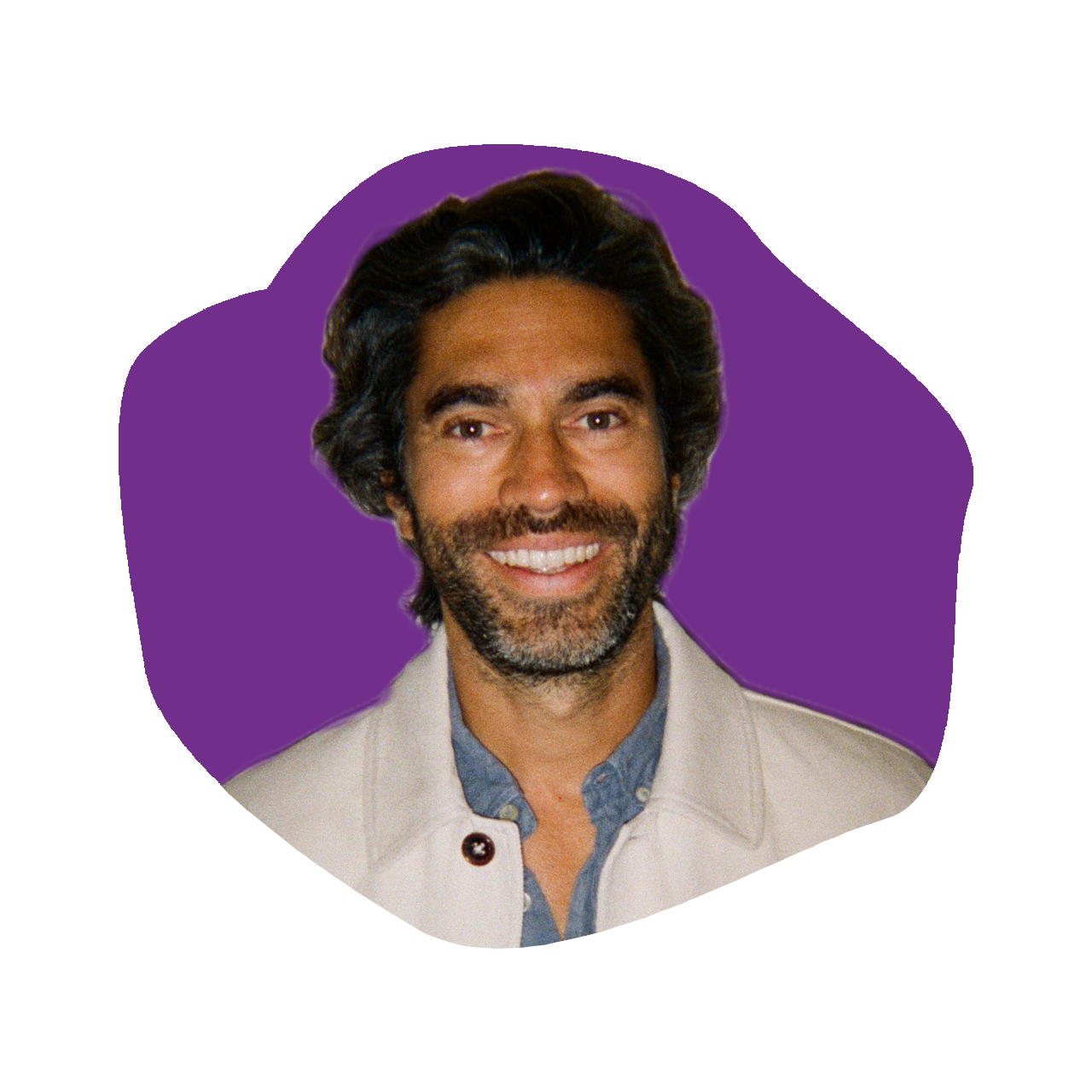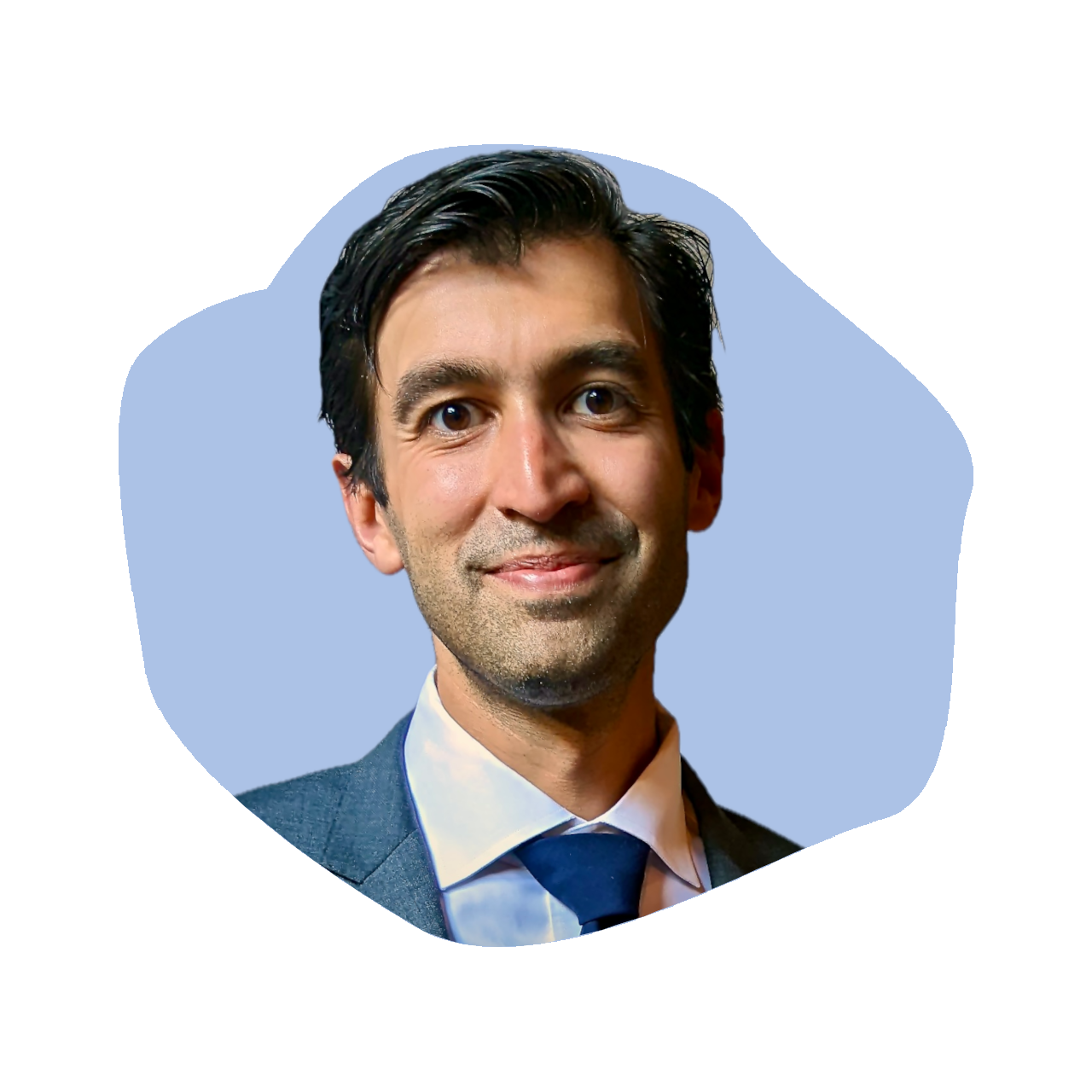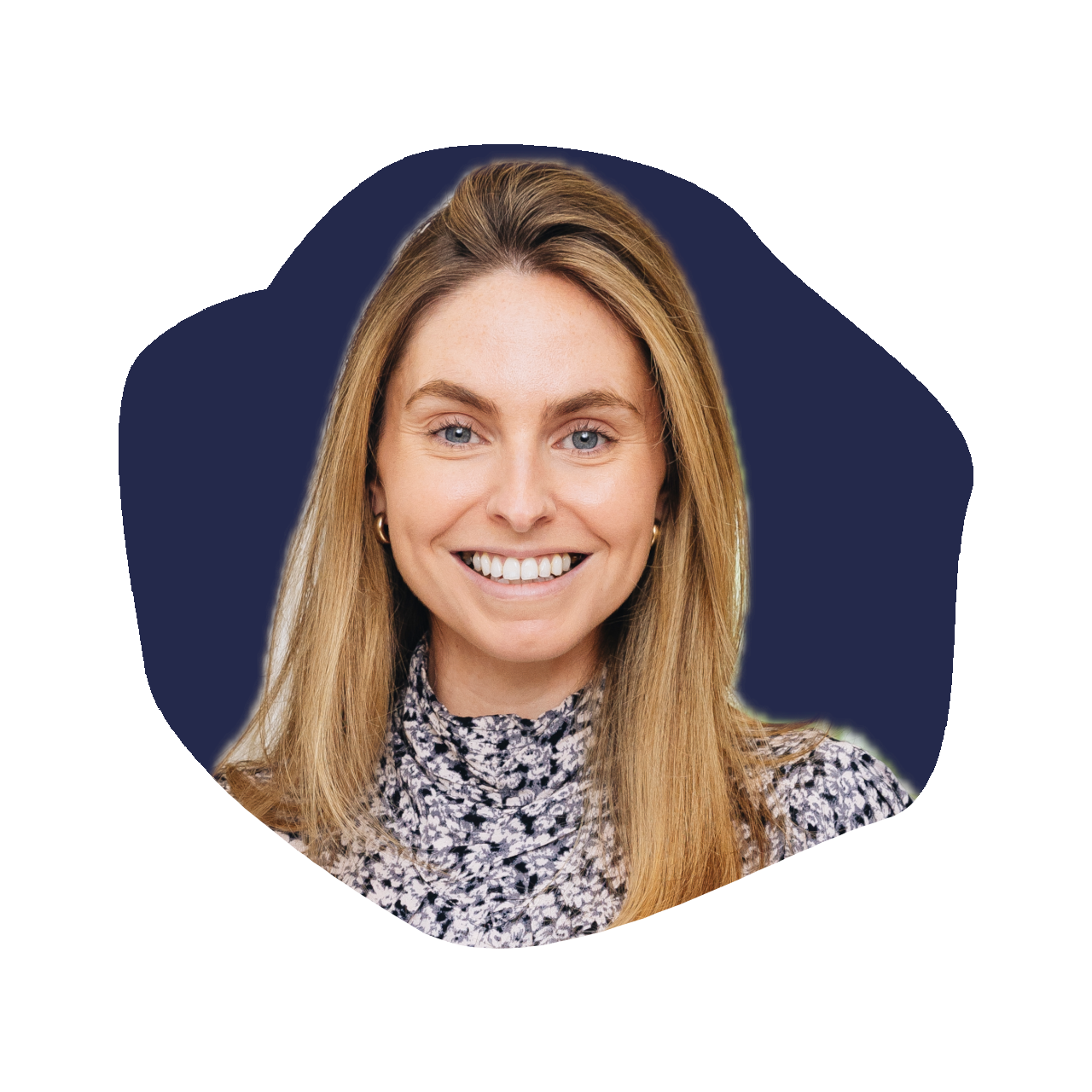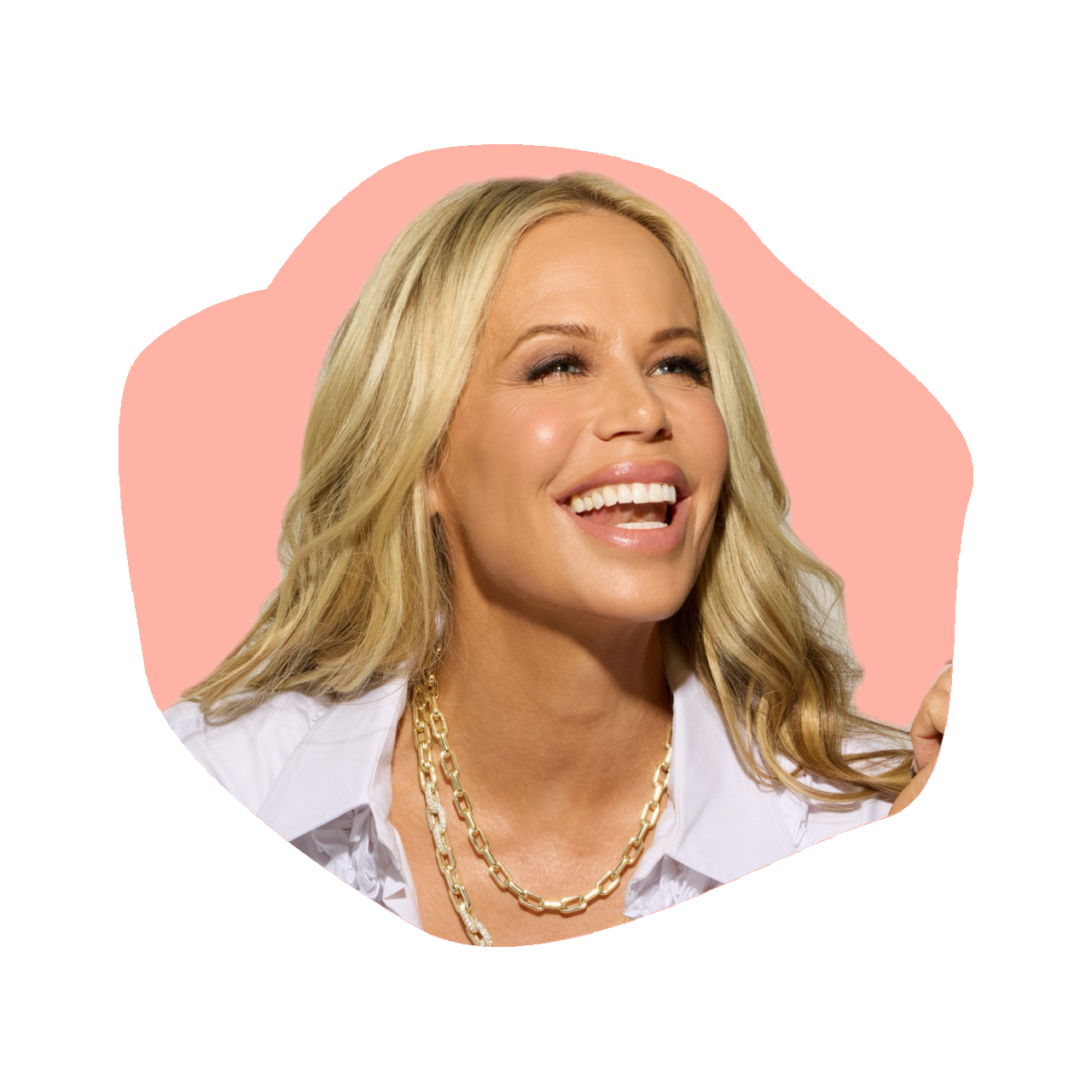Lauren Makler: Co-Founder & CEO of Cofertility
Episode 760
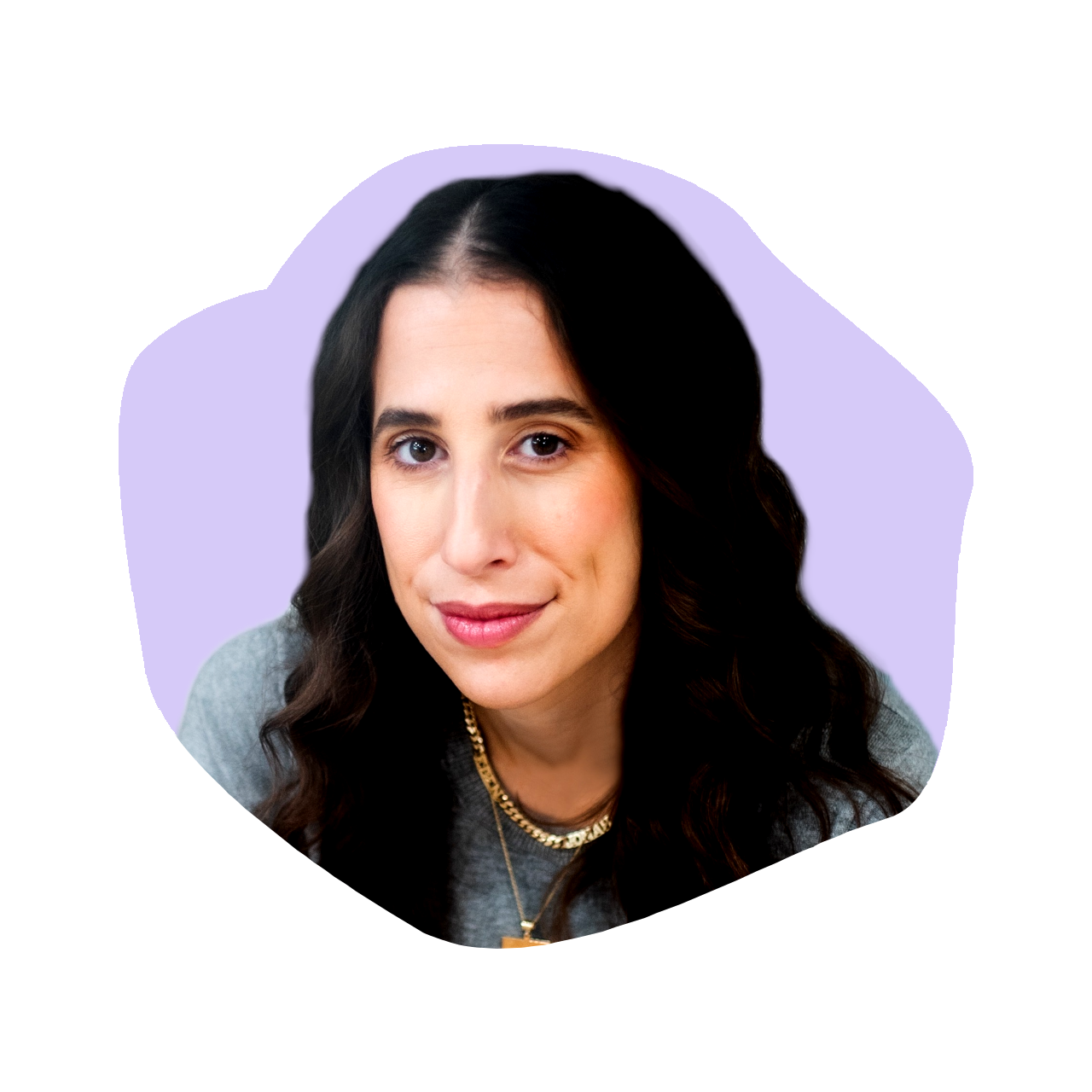
On today’s episode, Kara welcomes Lauren Makler, Co-Founder and CEO of Cofertility, the revolutionary fertility care platform making egg freezing more accessible and egg donation more human. Cofertility offers women the opportunity to freeze their eggs for free when they donate half—reshaping an industry traditionally built on transactional models and high cost barriers. Lauren’s work is transforming reproductive healthcare into something more equitable, transparent, and empowering.
Lauren shares how her personal fertility journey and background launching Uber Health inspired her to create Cofertility. We dive into her approach to ethical egg donation, building trust in a sensitive space, and scaling a tech-enabled platform that puts patients first. From disrupting outdated healthcare systems to navigating the emotional and logistical complexity of fertility, this episode is packed with insights for founders, healthcare innovators, and anyone curious about the future of family building. Don’t miss it!
Resources from
this episode:
Enjoying this episode of #TheKaraGoldinShow? Let Kara know by clicking on the links below and sending her a quick shout-out on social!
Follow Kara on LinkedIn – Instagram – X – Facebook – TikTok – YouTube – Threads
Have a question for Kara about one of our episodes? Reach out to Kara directly at [email protected]
To learn more about Lauren Makler and Cofertility:
https://www.cofertility.com
https://www.linkedin.com/in/laurenmakler
https://www.instagram.com/cofertility
https://www.instagram.com/laurenmakler
https://www.cofertility.com
Transcript
Kara Goldin 0:00
I am unwilling to give up that I will start over from scratch as many times as it takes to get where I want to be. I want to be we just want to make sure you will get knocked down. But just make sure you don’t get knocked out, knocked out. So your only choice should be go focus on what you can control. Control, control. Hi everyone, and welcome to the Kara Goldin show. Join me each week for inspiring conversations with some of the world’s greatest leaders. We’ll talk with founders, entrepreneurs, CEOs and really, some of the most interesting people of our time. Can’t wait to get started. Let’s go. Let’s go. Hi, everyone. Welcome back to the Kara Goldin show today. I’m joined by Lauren Makler, who is the co founder and CEO of Cofertility, which is the innovative human first fertility platform that’s transforming how we think about egg freezing and donation and and after launching Uber health, where she helped millions of patients get access to care, Lauren took her talents and her deeply personal fertility journal into the startup world, once again, co founding this company that she cares very deeply about, and this time to build a new model for reproductive care. And Lauren is helping women freeze their eggs for free when they donate half, we’ll get into that business model, but she has been recognized by many of the top press and more for building something that is scaling impact while putting dignity and transparency at the center of the experience. So I can’t wait to dive into how she’s done this and the model that she is breaking and scaling, and how Cofertility is shaping the future of fertility care. So welcome, Lauren. So nice
Lauren Makler 2:01
to meet you. You too. Thank you for having me.
Kara Goldin 2:04
Kara, very excited. So okay, so for those who are not familiar with your company, Cofertility, and how it’s different from traditional egg donation or egg freezing models, can you share a little bit about it? Yes.
Lauren Makler 2:21
So like you mentioned, at our core, we help women freeze their eggs for free and store them for free for up to 10 years when they donate. Half of the eggs are trade to intended parents who need the help of an egg donor to have a baby. So we are really solving a problem for two different groups of people. On one side, we know that egg freezing is this incredible science that exists, right? It allows people to sort of preserve their fertility and time and have a child later in life. Should they need the help of frozen eggs to do so? And it’s, it’s amazing. It exists. The problem is just that it is so cost prohibitive. It is something that is, you know, between 15 and $20,000 to go through the process with medications, the retrieval costs, and then storage on top of that. And so we know the best time to freeze your eggs is the younger you are, so it’s really when you can least afford it. And we wanted to help make that more accessible. On the other side, we have intended parents who need the help of an egg donor to have a baby. That could be someone who struggles with fertility challenges, maybe they met their partner later in life and have diminished ovarian reserve, or a same sex male couple cancer survivor, any number of reasons someone might need the help of an egg donor to have a baby, and it turns out that existing egg donor egg donation options are really falling short. So intended parents struggle to find a donor who reflects their own background, or who is, you know, really aligned with the values in which they’re hoping to grow their family. And so traditional egg donation is done actually through cash compensation, where a donor is paid anywhere from 10,000 to $100,000 for donating her eggs. And this takes that out of it entirely. And so our solution is really, you know, killing two birds with one stone and helping bring access on both sides.
Kara Goldin 4:20
So the the moment or experience that made you realize you had to build this company, if you think back, like, what was it?
Lauren Makler 4:29
Well, it’s interesting. I actually was, I was building Uber health just a few years ago, and I was diagnosed with an incredibly rare abdominal disease, and one of 154 people on the planet to ever get it. I was told that I had basically masses growing throughout my abdomen and pelvis and would need a number of surgeries to remove the disease. They said it was very likely I would lose my ovaries in the process. And as someone who was. Wasn’t yet ready to be a mom, but always knew I wanted to be a mom. I was like, Well, what will my options be? How will I have kids someday? And they told me, you know, don’t feel comfortable freezing your eggs at this moment, because we don’t know, you know how a rare disease will respond, and so egg donation might be your best bet. And so I am a total planner, and decided to look at all things egg donation. And I was shocked by what I saw. Frankly, this idea of cash compensation felt to me just seeing that like the more specific you get with what you’re looking for in a donor, whether it’s her heritage or hair color or education, the more the cash compensation goes up and up and up and so to me, I was like, Wait, this is surge pricing for egg donors, right? Like, what is happening? It just felt really transactional and misaligned for me. I also thought it was crazy that these donors were billed as anonymous When at home, DNA testing exists. Like, I just just, like, didn’t make any sense to me how this was how the space worked. And so my sister decided that she would freeze eggs and donate them to me in case I needed them someday. So I ended up going through three major surgeries knowing that if I woke up with no ovaries, at least those eggs would be there waiting for me. Total miracle. I ultimately didn’t end up losing my ovaries and went on to have my child without using my sister’s eggs. The minute I held her in my arms, I just thought, This is it, like I don’t want to do anything else with my time than help other people have babies. And so that was it.
Kara Goldin 6:38
I love this. So when you were, I guess, what are the barriers that exist for starting a company like Cofertility and and you have dealt in the healthcare space in your previous role, but I would imagine, I mean, it’s there. There are other things that maybe you hadn’t run into before.
Lauren Makler 7:05
Yeah, so with Cofertility, I think this was the first time, you know, trying to build something in reproductive health, during a time where reproductive rights and access to IVF and family building is like on a big political stage, right? It is a time where so much of this is debated and questioned in many different settings. And this posed, you know, big question for investors, as we started to put this out there, we had to figure out, like, how do we navigate this business when, you know certain states might block access to IVF, and what does that mean for our operations, and how do we handle it? And so our team really prides itself on being nimble, and, you know, making changes, and you know, following the guidance and following what’s happening in the space so that we can move really quickly. But health care is hard. We joke sometimes hard is our moat, right? Like, I think that sometimes the harder it is to build what you’re building, the less likely other people are going to try to compete. And so I think it’s a maybe that’s a glass half full way of thinking about it, but I try to keep that perspective when I can, I always
Kara Goldin 8:21
share with non, non entrepreneurs, non founders, that I I’m so fascinated by the back stories and the things that the founders have and the operating team has to do in order to make a business run and And I mean, I’ve gone back, I was obsessed early on, and worked for a little startup that was a spin out of Apple, and was obsessed with Steve Jobs. And I’ll go back and listen to Him speaking about the company, and you never hear about the hard, hard things that we later find out we’re going we’re going on. And, you know, it was part of the reason why I really wanted to start this podcast, because I think there are a lot of things where it’s almost therapy for founders, where you get to talk about, like, you know, you can’t really talk about from a consumer perspective, like, Okay, this is what I’m working on today, so that you can have this. But there are, there are so many things.
Lauren Makler 9:22
It’s wild. My co founder, Hallie, encourages me often to write them down right to, like, put pen to paper on some of the hardest things that we go through. And for two reasons, I think. One, I mean, it makes a great story someday. But more so I think I think about like proof of past performance when I’m going through something that’s really hard, and it’s helpful for me to look back at, oh, we navigated that one, or we got through that. And, you know, if I can see it there in a single list, it helps me sort of look at the next hard thing that’s ahead of me and think, like, like, we got this. We’ve done it before, yeah,
Kara Goldin 10:01
definitely. So the process for a consumer wanting to use Cofertility, what happens?
Lauren Makler 10:10
Yeah, so it’s a different process on either side, but if you are interested in our split program, we call it so that’s the person who is freezing their eggs, you start with a simple questionnaire on our website. So coertility.com and you share a bit of information with us to make sure you qualify for our split program. And the qualifications, I wish that I could make them myself, but they are set forth by the FDA and ASRM, the American Society of Reproductive Medicine, for egg donation. And so these are things like age. Someone must be between the ages of 21 and 34 to donate eggs, certain family, medical history, lifestyle, behavioral factors, you can’t smoke cigarettes, things like that. Once you get through that process and qualify, and it’s like a deeper application process. You have a one on one call with someone on my team, so it’s a zoom call where we get to meet you, and it’s a sort of an opportunity just to ask any and all questions, because donating eggs is a big decision, right? This is not something that should be taken lightly. It’s something that someone should really be thoughtful about. And so we want to make sure that they have enough touch points with the points with our team to really understand what they’re doing. And then from there, you create a profile, and you’re listed on the platform to match with intended parents. And on the other side, when you are an intended parent, you create an account with Cofertility, you have the opportunity to have a free consultation call with a member of my team who helps with what we call matchmaking, to help you find your match and to help you find an egg donor. And once you feel confident that you found the right person, we do, we essentially sign what we call member advocate to manage the match, and that member advocate will meet with both sides and basically break down what the entire process looks like from start to finish. And we have a tech platform that enables that whole journey for both sides as well. So once that gets initiated, then they go through the egg retrieval, the donors half get sent to long term storage, and the intended parents get to create embryos right away, and so at that point, once they have embryos created, the intended parents can move forward with what an IVF is called a transfer where, sort of implanting the embryo so that they can move toward a pregnancy. And it’s been really incredible to have that come to fruition, and we are. We just had our 50th Cofertility baby born so and many more pregnancies on the way. So it’s really exciting to like now have intended parents getting to that point where they’re sending us baby photos. Like, what is better than that? Nothing.
Kara Goldin 12:58
That’s it. That’s incredible. So are so do they then go to a center? Or how does that process work?
Lauren Makler 13:07
Yeah, so Cofertility partners with a number of fertility clinics across the US and oftentimes, an intended parent is able to do this entire process, staying with their current fertility clinic, or in other cases, we will make introductions to some of our favorite fertility clinics so that they can move through the process really quickly. But for those who are on the egg freezing side, we really act as that first step in the fertility journey. We call it. We talk a lot about what we call the Big Sister effect, and maybe this is named after my own big sister, who donated her eggs to me. But it’s really an ethos that we have as a company, that we want to be that really approachable first step in someone’s fertility journey, because we know that it can be really intimidating to set foot in a clinic that’s been designed for people who are struggling with infertility, when you’re looking to proactively freeze your eggs, right? And so we are that first step.
Kara Goldin 14:15
And like obviously it will range, because you are working with different partners. But what for somebody who is actually going to go through this process, you know, in either side of things, what is the range in pricing like? Obviously, it’ll vary based on the state and the clinic and all of those things. But is there like a range that it would be,
Lauren Makler 14:41
yeah, so on the egg freezing side, if you participate in the split program, it is literally $0 so from end to end, the retrieval, the medication, any part of the process, including the storage up to 10 years, entirely free, like we won’t even ask for a credit card. So on the intended parent side, like you mentioned, it certainly does vary based on a number of factors, but on average, we see an intended parent’s entire experience roughly being in the $35,000 range, which is less than what they would pay elsewhere because they are not paying the donor cash compensation. There’s $0 of cash compensation. So that’s like the whole process, including the retrieval the medication and getting the eggs.
Kara Goldin 15:30
How does this vary for you based on different states? You’re based in California, so does that like help you? I mean, and anyway, so I’m based
Lauren Makler 15:41
in California. Our team is spread throughout the country. We’re a fully remote company, and which I really love as an entrepreneur, and that it doesn’t limit me in terms of finding the best talent to join my team. So that’s like, one of my favorite things. And as a mom of two very young children, being able to work from home is a plus, but we have partners now in almost every state on the clinic front, and so we are able to make this happen in any state. I think what we see in terms of pricing is that where clinics have more competition, they have to keep their prices low so or lower, to compete. And so if you’re in a geography, I think LA is a great example. Or, you know, Chicago that has a number of fertility clinics, they have to keep their eye on each other and make sure their pricing stays competitive. Where we see the prices get higher is often in what I call a fertility desert, where there’s maybe only one fertility clinic, or a couple fertility clinics, and they can sort of do what they want, because they’re the only game in town. Interesting.
Kara Goldin 16:50
So you have experience working inside of a large company, but you started kind of a, you know, Uber health was, my sense is, it was a smaller business within a large company, but still, you had the backbone of a very large company. All of a sudden, you’re starting co founding Cofertility. What lessons maybe did you take from your big company experience and, and I will preface this by saying, in my opinion, not everyone can do that right. Not everyone can take that experience and go start something. It’s a choice, and, and, and it’s hard. It’s often harder than they ever thought. But I’d love to hear
Lauren Makler 17:41
so I think I had a unique experience with Uber in that I joined in 2013 when it was around 200 employees, and then I stayed until 2021 when it was about 20,000 employees. So I really saw an insane transformation there. And I think we really held on to the startup mentality for a very long time at Uber and then my experience with Uber health was as what I call an intrapreneur, where I got to take something from a seed of an idea and put it down on a slide, on slides, and pitch it around internally. And I had to get comfortable with the idea of hearing No, right? So early on in pitching Uber health internally, I had people say, and I quote, you really need to find a new hobby. Lauren Uber’s never going to be in health care, right, or oof, you should really find another niche, right? Like a lot of people said no, and I am relentless. That’s like, one of my personality traits, and that I just, like, kept going until I got in front of the right people on the executive leadership team who were like, wait, what? Of course, we’re going to build this. Like, yeah, go for it. And so I think that conditioned me for what it is to be a real, like, entrepreneur, right? Like, I think that if you are somebody who can’t handle Hearing no or takes offense to it, or, like, really has a hard time getting back up. Like, entrepreneurship is not cut out for you. So I think, like that experience at Uber helped me to sort of think about the No, literally, I hear no and my first response is just you wait. Like, like, I have a list of people that I have just you waited, you know. And so I think, like, that’s something that certainly is very valuable. The other thing I think that came from Uber is this idea that people who are, I don’t want to say old school, but I guess old school is the answer. I think like when they are in a space that’s been done a certain way for a long time, they have a hard time accepting something new and disruptive. And so occasionally, we’ll come across that in the fertility space, where they’ve been doing egg donation a certain way for a very long time, right? They have been doing it under. This, you know anonymity guys, or they’ve been doing it with cash compensation, and they see Cofertility come in, and our donors are amazing, right? Like they are highly educated, super ambitious, really excited to help another family. We’re limiting the number of biological half siblings. They’re they’re meeting the intended parents. We’re really doing something very different. And sometimes I will hear the response of a clinic, or I’ll hear the response of someone who’s like, been in the space for a while, and I’ll tell my team, it’s giving taxi right now like it is. So taxi, and that just my team knows, like, oh, when we hear taxi like, we know how we have to respond, and we know what our like, how we’re going to show up in this conversation. So I take that with me every day.
Kara Goldin 20:47
I love that. How did you find your first users or egg donors, and what were their reactions originally to this model?
Lauren Makler 20:55
You know, it’s interesting. Another thing I learned at Uber health, or at Uber rather and Uber health is the value of a soft launch. I think a soft launch, before you have eyes on you from press and important partners, gives you the opportunity to sort of test and iterate on any part of the experience, whether that’s the messaging or the contracts or the steps of the process, like any part of it. So we, before we launched Cofertility publicly, we had soft launched for about nine months ahead, and we did the same thing with Uber health about nine months soft launch so that we could get their feedback. We initially found them by running ads on Instagram or having a few like influencers post what we were doing, but we we were really honest with them. We said, Hey, we’re launching this thing. This is what we have so far. Your feedback means everything to us, and so, you know, we’d love for you to give us feedback at every single touch point that to the extent you’re open to it, if you’re not comfortable with that, like, we’ll come back to you once we’ve hard launched, and you know, once we’re further along, and I think people really like respect the honesty and are excited to help. And so that went a long way for us. We We laugh now about how many different iterations we have of our initial like funnel and experience, because we learned so much during that soft launch.
Kara Goldin 22:24
Yeah, and I think it’s the to your point, to the ability to kind of look at those things and figure out what’s working and what isn’t working totally maybe it’s gonna work later, and it doesn’t mean it’s a bad idea, but being able to figure out what is the focus in order to move it forward. What’s been the most surprising thing you’ve learned from your community, whether it’s donors or parents,
Lauren Makler 22:52
the most surprising thing has certainly been the excitement around participating in egg sharing, right? Like, I before we started Cofertility, I did not know. I thought, like, wow, yeah. I mean, that makes sense. Like, why wouldn’t egg donation be done through an egg sharing model? But I didn’t know if that meant other people would do it. And what we have found, and we did an initial survey to, like, find out if this was of interest to people, and we had like 1000 people respond in less than 24 hours, all women between the ages of 21 and 34 and 66% of them told us that they were interested in egg sharing. And so that was enough for me to like completely dedicate my career to this. And that has only proven to be true. Not only are these women signing up for it, they are going through with it, they are excited about it, they’re telling their friends about it, and they are proud of the experience, and feel like honored to do it. And so I’m kind of, like, moved by that every day, and get really like, you know, I think that when we see the babies born on the other side, it’s just like another reminder of, like, whoa. This is working.
Kara Goldin 24:09
Love it. So, how do you think about this last question? How do you think about the future of reproductive health, like, more broadly? I mean, whether it’s in the US globally, where is it headed? Yeah,
Lauren Makler 24:23
so I think about it, I think this space is headed toward choice in all things, right? I think women want to be in the driver’s seat as much as possible, and they want to have options. And so I think solutions that provide them with options are absolutely where we’re headed, and that’s why we care so much about what we’re building. I think the other piece of it is that when you are building in fertility care, at least like it is absolutely has to be thought about as like a three legged stool, right? Someone has to be able to handle it. And emotionally, they have to be able to handle it financially, and they have to be able to handle it physically. And so solutions that think about that whole all three of those aspects are the ones that are going to be more successful. So we’re always thinking about it through that lens. And there’s so much to do in this space, and so we’re, we’re really excited to make it happen.
Kara Goldin 25:23
Well, Lauren, thank you so much for joining us and talking about Cofertility. I’m so excited to meet you and to hear all about what you’re doing with with Cofertility. And love how you know you launched an initiative within a large company as kind of the, you know, not just training grounds, but you did learn a ton, I’m sure, from that experience and how taking that and going and starting really solving another problem that you saw in in a similar space was, was, you Know, able to be and you’re doing a great job of scaling this company, and it’s such a powerful reminder that the most meaningful businesses are often born from deep personal experiences and taking something that you’re curious about, even if it’s incredibly complex and and you can really change life for families and not just women and for everybody listening. Thank you so much for Thank you. Yeah, coming on and and, and also for everybody listening and head to Cofertility.com to learn more about the platform and everything Lauren and her co founder are doing until next
Lauren Makler 26:43
time, we will see you soon. Thanks so much, Kara.
Kara Goldin 26:47
Thanks again for listening to the Kara Goldin show. If you would please give us a review and feel free to share this podcast with others who would benefit. And of course, feel free to subscribe so you don’t miss a single episode of our podcast, just a reminder that I can be found on all platforms. At Kara Goldin, I would love to hear from you too. So feel free to DM me, and if you want to hear more about my journey, I hope you will have a listen or pick up a copy of my Wall Street Journal, best selling book, undaunted, where I share more about my journey, including founding and building hint we are here every Monday, Wednesday and Friday. Thanks for listening, and goodbye for now.





